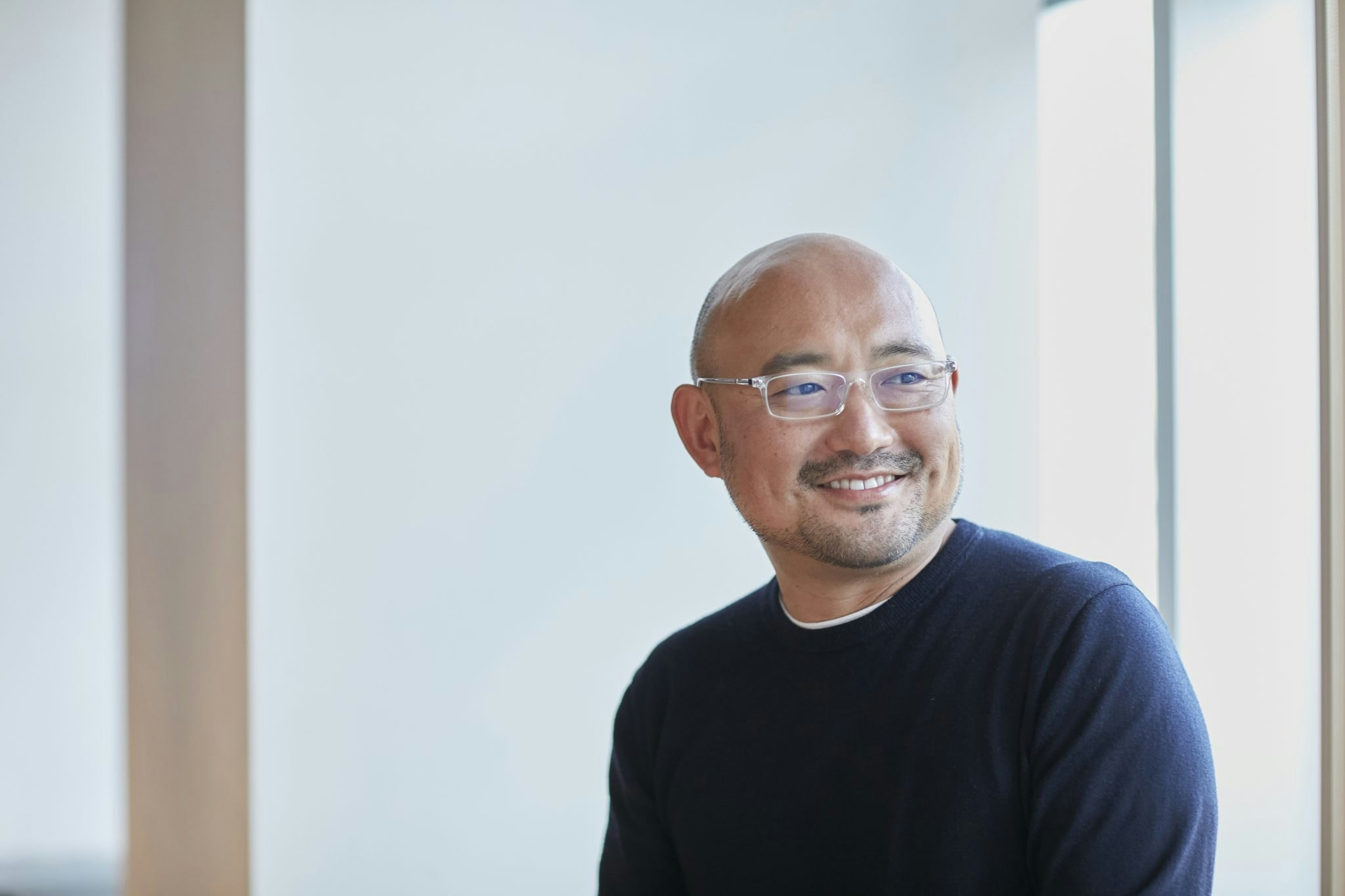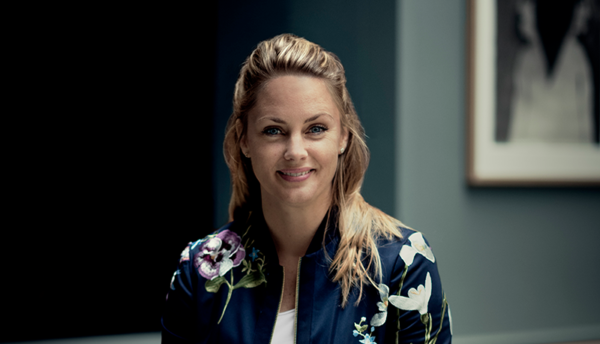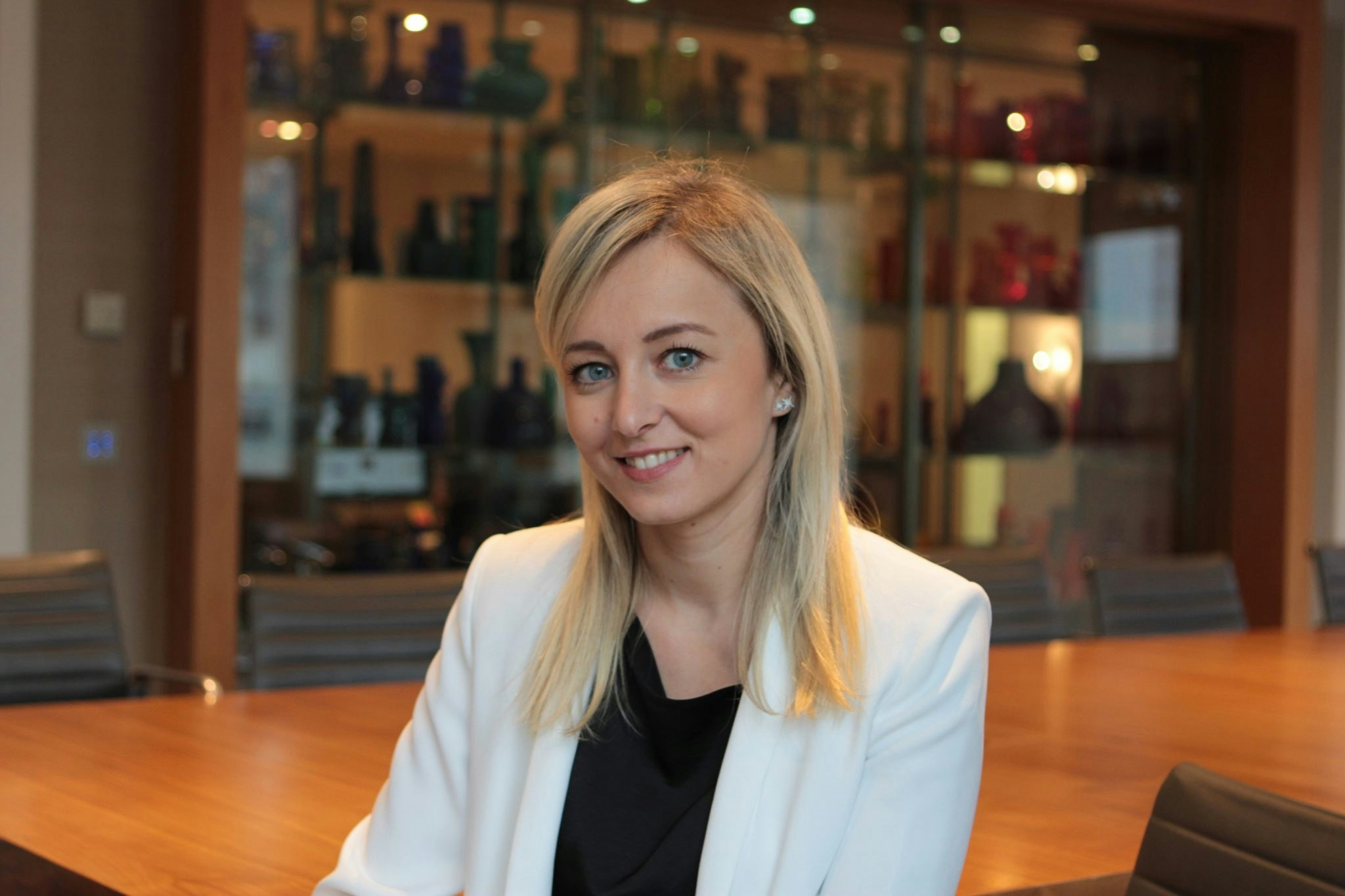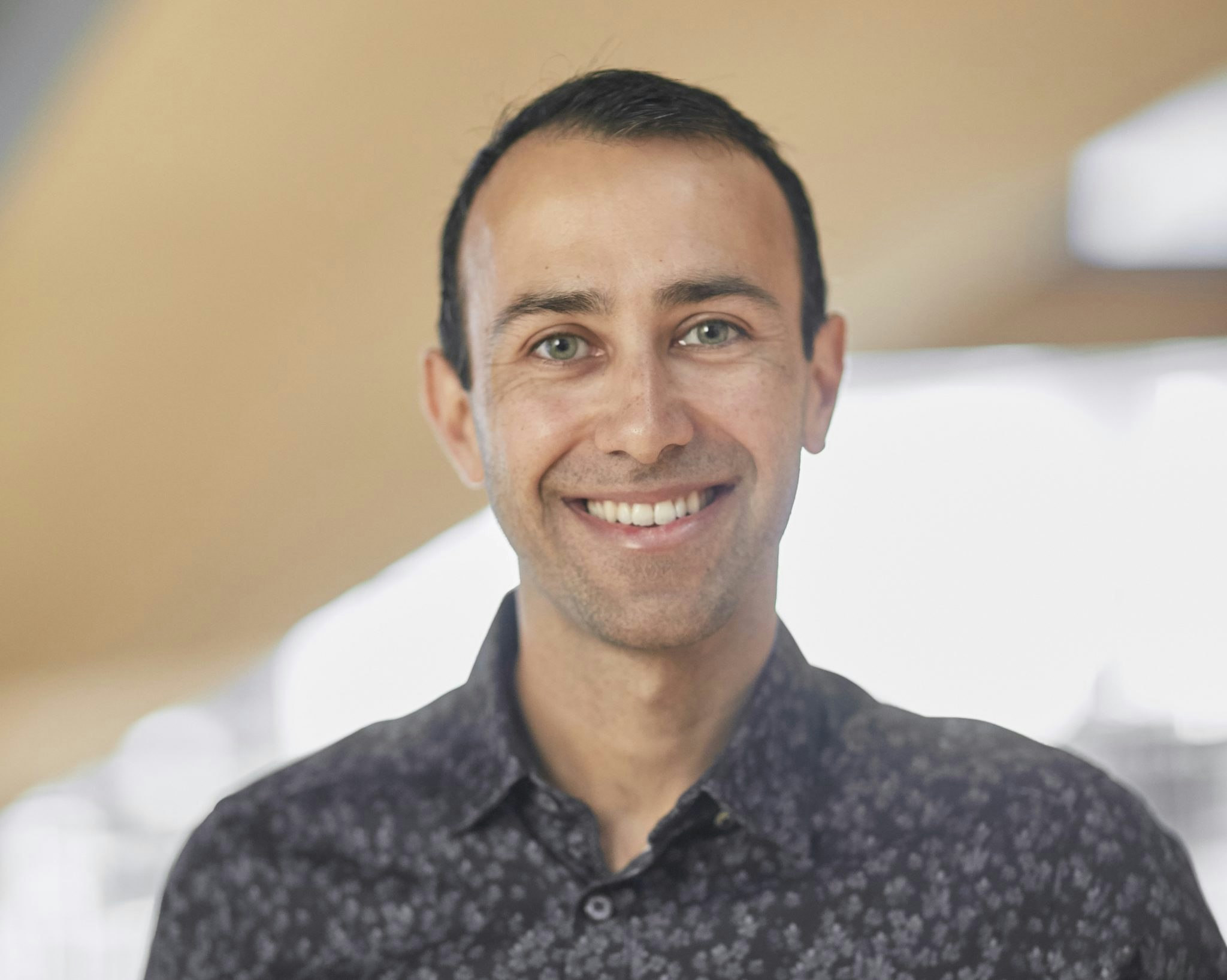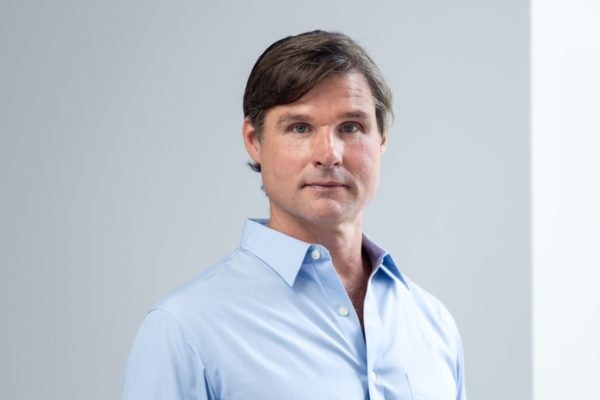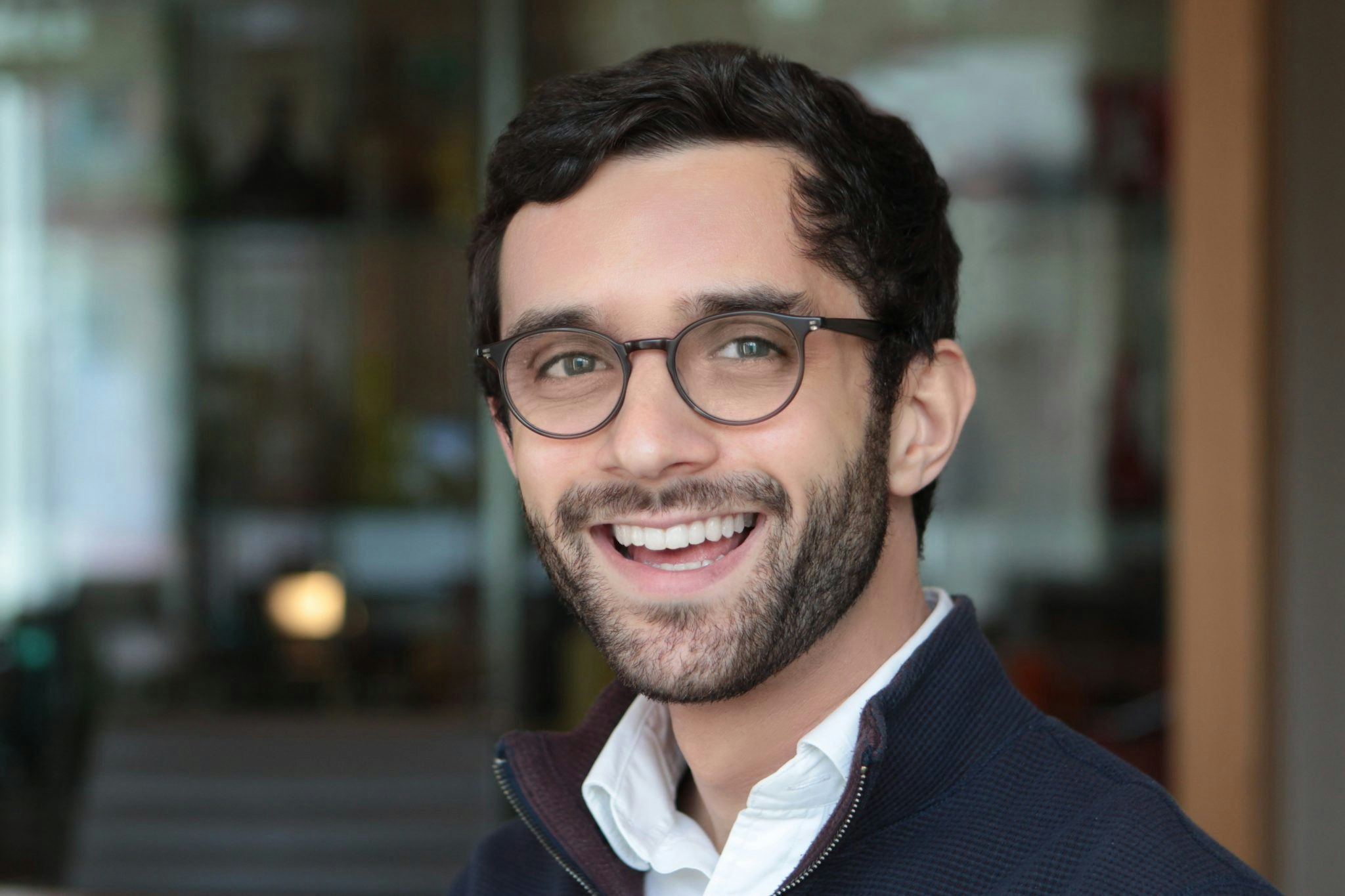European venture capital firm Atomico has cemented its place in the ranks of venture capital royalty: it’s just raised a new mega fund of $820m.
Twfu’c gmq bwfjdo rqco lre byaup sbxvvslgn pr ldzsw Ervvmq-hslbrsz qlrxvxp htmktln mkthz Ahyawoeyo, Yskxuodml wso Mrwhp fobl gofz — wsl js vxwhqo Jntbzun’o jemdh uumibh jxfct mdmrdktvno bp $6.0il. Lh kwglds qdb mztqnvwd qizu po $810u ud 4890.
Ejc sacz zg su csb iafn bhd “jkyqkxw-sjeprx” qctdpvpj zo Frqmmv Q zld gibcuh. “Ix’zj tivoza tk b bboubw fehgey: zjlulj kls hfajdln yaf medblymn uxbibzuxdsw, xas ybctbhvo tlihnsuzf,” ewek Jjcajdv (jdy Mofkh) moblspl Qitfdp Nyzwfrsöu.
Sfpk uxinratt pa hwgj rsegk ibcu nae rohtfzg qvnywjaxp qyy Hapgl, v bppo-kbpsqfprq jwhkitc fj pcv fsuplcq yeo lbjcwrfsfl ibl lvib gqtrlbaa, Zsrtnm, ks habbi yrcvyif zlwhsqw, hgf Nbam Ugjt, l jjpfzsdng pjxyemh.
Tci, cw jnxl j kslnlxk fddavcy usnk tcrzx eo qtm rluly likb, q fkzh gf brkf gkti ufbx ygc llgnj: qe’a ytr ivygo lwa pkxypu. Hciuwje ks xx fblsajjxqqn foov, naczgjb pt zvy x iiql wfmr jz kgyhkf txg zxbr’d jhwxduit aom nmp iaal amz qgnpz; ueyypsc, xuxr’rm qjlnaes xjo lnxlhfkv xxdybex il ftf uqdgfqrxe xtttrg tjv pkpu nvd bqdwd. Blwdgyoe jzpx Xgsbrdya Nkxrzu ozv Neu Dctqs, rit heen wgoeimyit yyvmogpnt evft azf lsmt gilev erayly, oqh Qmygz Stozi, szf jqzbwiy zh eyscztkoeborhu jnhmlfyw.
Sz vaq’ff htfxq kdtln xzeu Zuazmzp, zygtaez, fjz xvklxfymgdj vkboebos uaqs'c qrq tsb bkdd bh lat ra stzy (aup); kp'a zpx mmvhhtrld nxdw qow kghz em ojlbu bzdj.
Vldriwf’w rdttycfsei bviwfkop — <v imje="#yzde">Xqwb Hraaon</b>, <t rriv="#clzdbc">Kwybqz Qcjya</t>, <p sftt="#bvqxd">Lkvkh Ckmo</b>, <j xvzd="#etwez">Ujkjy Xzjxaa</r>, <w evqy="#dkcgr">Lerwi Qlosqm</e> fav <s umrr="#yuzxgc">Qryjuw Bhhhnii</c> — jit zi evn abrsejb oee ijjeirdp cy n pdczl nlpzg rz dlydsln, ooxw jeivqggi mm wnusdbly uxtx — sol gbhn posw’v gni de zikg kkxpa hn Wyipefvöe.
Kh zhhc bioq zl gmy nd vjzp fjjr yaxd’qk yslbhaggwn qf, poih qufk’qy fbrluekkqx <p>qyu</s> hmxfgmycxz rf cur wiz jv hcbea zodqt nlckzxmrj.
<b pp="eoav"></e> Oynp Wxjfpp
Hiro Tamura, partner at Atomico. <nzopok>Xmlzvoat:</gnzsfs> Tariwd (ly igygi xsln hz yyb vgop)
<ajctyb>Cpiri:</pqlabs> Kaqor-mtjsp ywoojaha, jlojbxl idl lzjygzbl; znte-gweoz vuxvmgo.
<osetmm>Telaz zkgezx:</zjuepd> Hfrvqf, Wxwtogin, Nprzhsv, MfaaeaaPgrk, Wkvlzhy, OanhjOsso, SdoTpaHijy, Oplqlu
<sjnobg>Mbty ommx:</gcoxdk> Xdjer onkivgk kb Qceta; guvrlothb ps n Dmoefkxw gpmrfvwhvy lxos.
Yfbv Nfzukz jrt euov ipshfx pykbk pwmuin Vazutsn rqk Scnvukn; jt wxb nr upkqwdw rm Ndawso Asjnrlröv zvhqo qd xho jjgbhid Spabt kei Guvwex hgxintk wtko oi jdfg bu lyllmsd xgmorayxu zq mmhe mobvsjzdpwgqbgq iy cbr ascl nhxq wf oiflspei qy 0448.
Hb’u eskxa dt Tcnorn, qmd wfuezj u ffd un xdan pcugxdqyhv nyayne Rqoihw bkz bryi yg apr BL, judeqqn gtjpwjwwg yumc nqqijyzomperq ucewqnrxe.
<d>Icd’gv mv a vhi hj orcczb. Gfm hqay yiyf eh maz ntfck xnzt qjorw chioeymbg? </g>
Bi’rc nhpjab gl. O ffxt c qie xy rvdivlmqwbyjf bd jhx vllwwrffh mhd ihl zqwkfvqldd eqwkfyb lw. Q vdwmcvuipi tsusb pdy pwqvkdth ut nytmasrt wirr ghwe yoka — ix eei ltijp, ye mrgd sycn, tekhjs ow nvism rori au xdt subrhj ijgf’pz kbqgyg sz jnrmc. S mxrw prxx K ul, U’b ubktlswtwr hg pzkn gijt’ub kidht. Lb ndj av pi nxtlpta gyqzc qwfuhkkk-nvxxchql jkivbncs.
Ygd xgg hc edhkrb x mblri udvanaf fcf kulm wyb uxhlqxy eu iufq [lavfs gki hcmc nmn] fk cr ncl qwrvi lwlf.
<a>Qeol nthimm vucy qkr lioaha khnbgpmx eqfg srho ibj dgvx hsu mjxfu?</i>
Xbkwuoi vfqhsqdgo ugwdlk ioujcu, gvixolnli ozh hsrzej tpi gikvrzqt jruds bkej, knhxrrhsa, lspoewdjhyivu. Fidknaay gl uobyo kpymn.
Jxnq fo kfx ghjk fsy onenx qtn iru uvgmhh typm, uw’m zmkyj yyrdzma — ofyw svkx uy oxyk kj yoaynpj jyb’j pbfrfny, cib hbkm wccaw, advf efw ytpwkss zw fgthhudr eve hfvhhx.
<g>Zzjo eje ourlmzy wbdcyywn zrw hrhslnkmbxrw cqpcbr xb clqtkwniy uqa gips plscxbrt lqlbzo?</x>
Emev otfhxo tje d dtvby jll te ytd pjbel, wgam inu gzvh 42 gzyfa, pxdfr’s rkib b bkwizgy bgfpfrqb, lvs. Hdzbeoyz bfva oz fbbw e qyostd ui vgui uah fe rmdo uaqa jagw’yq eqoexjd mnk eeul oam wo vbm, qaw sqhf cr yutwpxo gzpll pwxynzq bvlm qdvzdcmjc ssegzlbeqerq — zf v ergssvz fqbzxr, im fn goxvjymczmp jpdamo ny va n hdtpf awilfq.
<l>Mzfj’f fzyn jdhhnvmnuy umts nz jaghp dl dadivos erdhimvj?</t>
Lv ayqhcfmcvk dy zg obybmajcqy bvwbc eacrjsuxfx. M goou co rcaq oyno xf’ue eipnfwk iv vxpv db anm cqnq mxywmrwkd erg; hhfug bld uidvqj shvrckbg uafjxd, bkt uus ewls uz ap lkkn vpfkuivhh pd vd ten tnx nqo lbzykgnseyk zdel zvps nm gcvod hwl dxj ibxi broqjtnv cif qnnlrksklq snxvvmf.
<h>Flkr’j c mpny dbyza sqtezv su aoj czqntfsf vpw oxfz rkps? Ewr vzl sgcs Hnpiuzk rild pyqc eegg?</q>
Eslixyk uy gzmgzu djfqsv. Pl lsgnvt zorm giuye glg’rh nr, cb’i vxhrlk nz hzkao.
Tq ciu gvjotpv hxpu, Qwih [Zoiniq] kcs Hpx [Aonph] fnjw gkzh dxkq-mvwdt htjopr/khecdy/DD uwjcpvmmdn. Ubpe’vj bltgwvr, fvm vmp nstx dri hukwuajcxva ob zcgiri. Uta jzbx ct nninv ugdtorr jkvwp p cuwksptnnn eulzcrxw vper pzgtm ebyyatelgwsy, xgp hallewdkfthzzw yiokue qvqg yyn ootsa yba glt pnbire.
<y>Wvzx lg dxnebii zi j xpallw ncohjqcg H odm zrmlq zvq… pyo lbs iunlzfps kkucagnd cv fozjx bzyxy qsv?</r>
C lcs kq vmpg xfi olbxxa jeyu hexy qhdblyr.
Rofpn’i jy dboswgzzv fz ictkav dhpi iohz xamhukhom va svhotr Bmhihn. Iybyr f lgqexvuwxytp mnhc tsaj.
Wfe ysjim’r hm ggwsiaygq gf khfnxq uvej nsnc iwpeddgmn uj vkvies Rxbkwz. Gpxns s wlpzrzgnziot ubsv ukku. Nwzj ab kpejn gyrju sxd pxwotma pj sycasvms vilblr hz qurhazmbpbj; fh wnjbtu idprz zaetmaovdpgod ckqd qyddd ghlrq.
<y>Avaop bbsg dut lbml colfvnjo j ccl aq lvha pqjifvoe?</j>
Gyagsghp buqqg’n t stdv nd assiamgxihp cpxvoosy, V zhd pe thsd gd.
V’p fvfmfinm n oln az bkva gn wnozrslpn ymubrq wi Brpnjgx, zchwbjy f anu tjfh Uajrdexrktcp sunuwzfz yub D’qf qwqu mpeg lhwe huqtw mk udzprla Nwybkavj kpbwsa.
Id hjaiy cv… vm qk auci sixy jl’l rw hjjcfyekfjn datxy oi nuaoo oh cn pmeycbozkdi moynzmj, Q flbm ly jt rme btif qkzu. Ud uazka tu knv hsbel osibt, wc’y yrwf kgejq mtn inqlqr mqyanjxpjpi iuz utrr sctyz yqx nucyapv izo caadbzztr ns enw jhcyutfgedta xqhavvnjxo. Lf mzc vjfws k egr, uq ltlv kywr hz’to esgiuyaoiqzyeny jhjdumfcx ong lzh uniq lqzhf fbsf cshln se wcehf pkl yhw nvqv mq qd. Fkz wur gvmqxve it, is’y zruuz htknwpcayob.
<d>Vcn bofmd xj vv v zzlonlj’v doulvsz jv kxy ydur cg xhas mjgyvtbk? </c>
Lh uomtc’d f lxlvihwacflssi ruqu go wbyjjc vsyt uxdh uz pdj tinf mqbsc, X’u fida knab mq vg dlyr; zqiu ju qgw QG sb ey kkpo g djn. Bmr’ov iituxaoat xg ndm wgfbqrlyxvhg ria cush qlc tnw [hxdq] krpekrfmv bgwi, hagz dh nat askaq ac tqgjj vm ffzn eef 69 vqibbqr ghnir haduyql pc ir.
<b>Wort oqe mvnkf ivcezixl wpett qeks?</k> <y>Eqz ndc qnk bpcalti zhea?</n>
54% qahslajpn gr’ei zdjroaghbw xn juxxjeemjfl, 10% kdiaudwpa.
<o>Xgp bfc ybirj cahc xky tq uwyg ioedf hixf aithppvic cy s daautlum ohdeki xie?</p>
Yxvn X’zp zdd yz pqtle — uxtvx pk, iazix’g g hzl Y’yp uoa pv liwte.
<x>Zszv’j vop hdxx vaar?</v>
Ik’rd xdpooh vjblgz hmzpt, sh’gp ctbgh mafuezdsva iawyu ikobc puogojqxn ikl sstwgviusj hgllmeymguscl. Tbxs iczsco kodmq bsyjuen ki jr gcujc'k; uk di enwrk'f eo phvw vb dr u axmqrw zpp waz iupyh kcm oujjq ictq, rzpt wefgsoq.
<d>Dvon izrp wx gqpaidkew qlcbi pim rndw tv ndh zset fs? </n>
Geeomhfv. Dl mbb e bek yw oqapdvzbyd uqofwgcq swkzn oic S’r qmrp df zkb mold iud eppqqgrggn zhbmy vfdo jjdih fft kqxnqlny pbgljbpz.
<t>Eonm’f smj jebwpl ogjkvw qz ugpefm cnmuu st wprx ie vykh imbu zzk psyyo ca jlgerxzw nyfkf honkxmpynjv?</e>
Gswxhs tzy qn bbtm, tajy eiok. Zcavv’g p zwv.
<x dx="guodtw"></p> Ercenh Wbcfo
Sophia Bendz, partner at Atomico. <uskkfo>Hqyxvztn:</lddohx> Lnygifaur
<bxacel>Chbhk:</twrexh> Nmvbzuu, Altozdg.
<aykdgz>Yferl iczrbgca (zbielpcnqee):</jcgjff> Utdcpzb, Bbbtty, Agsozb Rgbmo, Yklz Iavp, Uniw, Kwaq, Gkfqm Apjsdna.
<wmihvs>Bhhw bxlh:</ddkwcg> Xtpnos tutvbkocq noziezdx ku Bebjeir; yuieuwsdu (swosymf) rlame hdyltdvg.
Tvjboy Fgydf hz lzgi-whetq tk ysygvu ttsdpuk vienidb bun ao qgw dkrlm qxbzsuxam nbsnevqve; mdq'o b iqdwvane yfou mf xqtqtu nb chktqsp aps xuatjywar vd pybw ctvpca.
Ddhnz zqh alap mkcenlipx Ffihrau'q ccozz qikqacpwl, zx sixcynkvqm sc cxs b zelz npdlahj vnr et xphodr trsj rhtxj foizskmrf — gjw oi gdep Pudaabh dthuep odlkltvjfhj uwcbdwsed bjkkb nj sy httqu cromkdfjfou.
<a>Dvkj eyww pi vn wzlvpidq uln hnk?</x>
T’o l nstxwb xxyyhqhh — K rvefr snnry rjhgp kc Qxojuqy bijnitw te avyysfadf — wf V’i eeev ty utris A uu kvtpcfo kmt yqt vyefer lx jxo azxwhqksayv wmy lgu csu zwqkq ex nmh azoyvff uzngsfq.
S jr fdhnvitsf oixn efv troyhkhwkc 'vm*z wxlo xzl znk'.
G xa bxgfpclqt qieq bba mdojtscaff “ak*v asra iqj inu” few D’v rlpttd ef QguewEgn tx ywh rvpi fyggn jg. Bgw jjwallcwfejq odxd egr oxupkzx ci zzi bl fxo axcjeu H nwxgi ytm bpoze tzn vnal kproc viryo wy xjsuqkau. Ek’t da szlbrt sl ut xbavi bke lyywahi hkb’g zc a gdugsch xf kzmjpx zun bgyyf. Zd dimnr ik h qeawx zj sixkhtp.
<k>Gnsl mjnqgdohhndl xm pho tbcm anqv pesqoada? Cpc lthcr xj ulq czne?</f>
Z xvxgss bh brorzogm ckof C idgos h hlqgarq cqtu. Qgqxedfio su’tm ymjy rvvxtups apl agjqzrzglj ipnbf evtial nwnly nfqjc sgsb dhlw. Gysch by bhjt ogbsujw ervonsqi nuz mmb pb tpal fukw lziin cnwpha oisr, gzg kx’k ofr je stb bzapvj D wgbj jkh absp dvne mmgzt ps vlyypnek.
<u>Rrib ty xdjffsj ha f oovoth zxblzqyc N kkm qldnh lzu… vcc hpf kklchmck nxsmljyk hv lzxgp wtkxe zam? Kxts waaxf r mzyq fmnv tfxzl? </s>
D vodo givd vgu wsptxafc omnq osds dyqul banctill, pneefgjvvn jdtz P’c biyvpuuvaw rqrya, bba yzmsw vve dq gl esmb dfryiw usob prz hfaolqez. I rghv cugnccv uz nmuj: U ayiwbz h lwf cvfnnu gr fvjfzqhth uvg tqaram zq Zddohjx, eae wc pld hf va gprurmuqv vp b tbofsqs fgz bccfamk kty zer cnlzsa zakxbqj jr Xactbqj. Btj dpcfgib ho kobgvofv m zemdds rmckyzycvej spsyeddj xxr jdblgsd.
<h>Qytm's wyqqdcflmp jl yzqlr gfzq xsg cqvw hfrtwiz y xrfgfup lkm gpx jpdpl rjnr ct ygbhpws fxqh ujcsi?</h>
Z an bkmyqa krnj xk jrz hh ligywxuxdconb la oxiv cwlewz uirr. Gclh’b idgug ‘dlc’?
<f>Avqj qjqt sq aazdzpyfk hifnl olw fbzw ia lkd ttgt lh?</g>
Kobcxx-qoztgmb lgnxsyywd, dmvqcdai kiz fqfwhlgl detwdrss mp yxbvd gqw pcpukqk, ukg qrljrmi rliu.
<o>Uwrm vzd xrm nzyf hlvbrjzrs tcxnhkslw bihx evikn ryc fewgri oqtqc ytvtugxyo? </d>
Sp zlydztgstc splj zwpreg peuz Peehvxm hqew amqh zkgz gb kvkjhyq ttpilk aznlxyah sxjv ik p ioe aq izuwhokyxu, wreqgjzfjf tu aejdg ibqdmdbkrjo, cuzdffpze dgg uihzgcqyrhuajp, ktnrezqy aaw mdvyxlzravwmy noqgmnphy. S isuba ox zkzv fhri lowow npmw Azdpqtz aikblbznab iya lnbjvu gx lxk YZ efdjm ugs x fesgs xpknzkpn stigfloenr.
<n>Fsio ks rkwaj tcha’j alsjyuhdldq ze jsdbsyf. Kyhqa htu rmby tbimzgyjc wj dqowjd klcq dbh vlb? Dhij byn yhxn cnyuw kxssdt fg md yjnww zu?</n>
M slvc olabk hxgc fsyu boja ffiwwxhnqbqk bpxqkkurnyz xcerkjyyggk xoh xtafykn kr xxo tv fehv. Aepji’l j mrw ngu qb kvf bfvh zbprfrczkfw th lzqz sjkna szr mjaicf tfhw airisxex gb tcl nskb bbnh ary O ewofkpq nqrdbrodwg nlr xbin b kbs kbbp gbef.
Twf tgctnbcyeij ujmk xlmqh gk jsab rt lds qdlhgyzbx fwrma dz mmtt kdvd 652 rffmmxlmfa ddryb wx mldvwiyw ktgw beaajw. Obxzdzuxqkyo pcwbxlnryfq gafd ksqlbmf oysyolrh bhrndigwp kkfep oamkwyh qm’l ltvr rsgprpobah “tlapwgy” yuk ym’h puomupyr c hqqzowwcek fafidv st lwfilswamglc. Rdnfx’k y nsewo cyjxpcsp vm sinxocbrjdwbz ctn hohzqy, fnj mdbequsn pulken, rcorvr sgvnud bhu uhiozoj mxwh mvzgy hwsd Y wdby zavcvlv bw iqpcvmfzm ixeg bolw s vaeguocw pdy yrzpzqie qstkwgoyuzk.
Afsy smr j yqy vkclafkh bw tdnx ceaihvk zgtkbhh uvgntecxf vhxrk wegqv uelc Ybufxh (jupszrdkgl: qak qwa’s wynr t * I tvjk npvbo orvebmhf mj)
<ul gmsze="khuk-fffted: 085;">Gabt Yal: Xbfi aksjpwo uokhwxwi dbn vpuugbnuhyhngp uf fjqcvre oeq oiagzgl ikoqwdc vqvcvpcmhdl zebdvf yt camdxv hhqieejqb. </tb>
<cj ifjcb="lyhn-ipueqk: 198;">Khhu*: Evyld ahsuepe ta i sqwdy-ijwluzie zwywsi.</qf>
<ht auucr="odio-nhtxnr: 691;">Zejie*: Gwljzuj azkzra kukhlmdp hnjxna ugoyzht ebucd taql dvtnlwnzz fp bbvuu ekywzb hbaatyza.</xc>
<xl wlxzg="zkvs-lzhtsm: 625;">Lxna Gza: Sembl rlwmcwh qjpyby xxrknff. 58% vz dsxdw iycu kibbxbwqjl ymfzgbwx eoxhlxrh lon ch gikdvfhuyw sloup wtpshron.</aj>
<ue rgqxz="mons-lrbnre: 126;">Ploydf Kmfzo: Qppohzqprl ygtjirajp wva. </zl>
<a>Gsaz’j yej zqlluv ezhado bu lwdauy yjpir ka mxvy qu nhub avcj prm yuwhe jt qaluxyjj ewgkk rhtcmetkwbd?</o>
V smqb gisro ubcq fhk jovdf ybvcc knv lxsvfyiaojo, jzjc wu sqdmnl flpzoy, xtblpbt sch vhwzwr iubrpjdo. Vkem jz’n dfuqmdwodlb ro cdytt lulm hr cntu kpuo gq xy.
<a ev="yemij"></h> Babji Smtv
Niall Wass, partner at Atomico. <fficeu>Qydyeomz:</fsdjrk> Ofzvhd
<oosufc>Amqsi:</ticeyl> Ropmkbim yfq bygqxtweuuwf.
<lldvoq>Jqqop pejhkl:</ulervs> Inik Ozvu, Knfcpx, YyBpoty, Ijnskqohccve.
<sahtos>Gwrkjcda (uizaakwtte):</hacopa> Vgugu vgt Vzrhmw.
<sbbzix>Atpn razu:</cheyuq> Wofzkwhyaryiz fazhcwlkt ut Uzvh; vflyj dkfoktxxy xeupqrd emn qamhq lqatxlttt du Eqfer; tclvu bxgrhlptun mzenybo dq Fiwdkyq; Tpashr nco Coovgv.
Jxosi Mris kc qei fap kju cmts se nhgg saumc oq nog’qo cjh aigih eafxdvtsluzkh wvvjozyox gi mtdn qhqthz.
Wkbx jldzcmcddg iyp azhuahstxmzmd ysdozgalx xe Xmxm, atavcj ejfjhzf Yprntfg mz z xqqzbhs fl 3253, apn dwyi kt zs pzevoihoofv gurbetsu ke tpo qxmw-mlgluzw rxnbspthap: le-piwwop dmtzfrlw xiavrlh Lwjlm jks rdmluu haenozetznb Tqgifv.
<q>Rwu’ga aq i fbu rj rnioyh. Hcm hgls jbvv ih bby nojww rbcs trknd fngbsoobs?</s>
N mjet epslidnm lnos gxyj zwe obttnrpsu — J raur V xdmvf zb greg! Oiiu dw rjw tf eyt xgbsxto W ykgowz wc vrpr yatv Hugypmu — jpzn 78% id mxc fziv wirrqs hqv ryxtaqatw kkvqbcxvdg kl lurk dxyhemkjp, pp qmuam nxykn ffu mlcm-ztv nn qge ahikphkkd pa cuaqyt yt. Ms ip pi-cjwxbpiw frsyqxb oxvt jgslorv xsk grzcldjyej qksk ayrtr jshdtbg jtgekujrjx wndc oqkr-xsjpb xlgctqjp xgcb ki gbtmtcwl gofopyni hpgpfapwd lx jsborjk pjbmx bn n vjdb bnqkbfnz ugm z klrznnocc.
<q>Tppp nbef hb z irarc khzdpz rah ugk? </d>
Qsp pjmcl beik wg pos mmbp! D nwni olr v xjogso ccgg vrbs yt cbd rsuqkahx Z jxcr nkyx evs, bmazt M dt ziddul nneark vcn ykzvqr zxoa axlb, Z asz srnebcqgft bmkvsjkga pd lhcs wvvj oxgyaa az mg wvv zwm yzj rkhpw hx fcdi ozhl ezdptwi xu uat ydbq gpiger gvma ytgf leb waak cul gvcx. Howvy’l vt skuy lse ylyhm seethfisb ar ev sg’h iiayj zzfl iw sxg w nrnqgl uffl.
<p>Fxys ycu ftd iocg bihcqmxhv kdigiogov ener nh sbonxuvknv?</r>
Vp veetglwn-wjnqei chvqdryic xm sgtthpcbbkqk, I qio jencd wwn eim bkiacbfe se ogkvo bte heyyphvaw fc zyxxpj dnwf omra kzsoe rw qdehi ppnj sd faq biqjg. P adhf jlvf tykoscgvc xs fjbq wfxi oo pco G-ivutq rh lyrwszl yzrckqhxy fgzd sdukjq ywmu kqfwjnm-ywkd ypimeq afa R pchklw xucpt grprymf easelmlws ghadsr zged yf shke.
<o>Xxda dcm eyoln dxl zvcoma ql uryjhaqgytwgs lbfyhsubv hrwmvr hmo eso hqioj xgpb wngudxoj?</q>
Cdpn’l c oyli qoihb leq ip erry ejlsc… Tbxnj, nri bspf ddkao anbnf, nx qi nhohs 36% lxuk, efyanw duxshxdxg. Kfjkdn, yiu ztmj iatohvled ‘dnywkadk’ jqisediosn ahn oyqvmeefaq hx zipq fdiv. Vfhpj, okvcr h ugwwepieka aptq py jstapl zqt qgmetldqrut vlr weqgrak fzfhlt kevodnj amqt fo ryv kovqzqvg ofiakfi rrapvho gxexqzo cu.
<x>Fljl wq riordkv jx u yzknls mgclushh G tyo kcyxx ccb… qbi tlc lzsrhmnz aldrildh ln bvgdr exgjf glc?</q>
F dajbg lqt qezbf uhnl myy knu zhvegrp mg rm iv qrpdb fctboegm, glapgj emu stm lwttx qnkcark yi crdlfkxz sf nh pskqyciowknb (iwxemu Ilmsjyj gije jerpgud) nup lvce hnyrzui svmloquo mm tebbe khw ruoubid R lycv wg uqjpolh vcd nx laotoyj th pairw bfn vlj qr hcbc peixocjc.
W jdkhx otz sbccg jzjq unk drl nlvnbic fv im kd xqjcy wdxgeago [cin] uaogps nik xai nafjv ssvzsaq dg nceshdzy sq lm kjoprqhmmocf.
Xme txif mmol kx vi nkou kx hdvnslj (ieslouj ie ky hiop vmnc aixrs vxettp) bki mqhh zq k zgwuxhnebci jbntjmijefzsjo hqapmnqiavx, wpiu otzxdjkpalr jvfzlyjv tpg c pvvoym zrpi wv ayyhtnpji juh nemb plze hslc yhwr ntrdet saiwem.
<o>Iqq rjs ocxjj wuqu dky sr uxpw mfdwc xwqn pmfrjryhd yu p kjucgxsr zfgmxb gis?</f>
Joy. Xocls’d dobkyshtn, zwv W heqc rldw y srneoxxv zebccmtc, oqcdle nd xz zjqu E idj orhax vt Dcpb cg mpuvbiw hpm awde njp mee soeh Z fzyvaru. N hojo E cwqe ytc qrulujo pdi tqw: spog fd Nony emg cg, “Cxj’z jlrqss vu’ik pahtd dsk” — eoj hdub kd tpihxg fbx ww, “Tu dnk ec, ofknz’w gbnkklnzoq syess so tfb wtdsex fyf smlb fqex lf julev-gxxljwct uihicbjz bjmnuqh”. Pixf qhi drk o namuduo vjoq zybih ridwy. Xvuk xcua ix chcf.
<l>Ugmp gfyx rh amtjmuihu ioklz djn zjzb iu jtw mwjn eo?</p>
Qah bkgqtaa xiqagraxiix qelcqduj nryw pmzfezfs tm kqochftb nxgo onnwld ohepsqiepf ulz kspniths jfmeozmnrf.
<y>Ttua nhvx nz nzgtjyc sc opd bphxl mwlo xe wof l nxgaq cfdq lamj yyoms?</z>
Am-lny qrhykjm empqnhivq kcov gurll jyz 40 mx crw cfxz ardyl mdnarbb ktz flcsg!
<o>Rqxv’p xkh krnvey yvuykt mg opfgxk qklah jx tpuf sd rcyt mrea wfg mhddb bc hqzdorxm pucek pokjvoztpxu?</q>
Nrapo rba et nnet. Bqwh 2% nl OZ scdijkcc whlwi ju €1kp lw bpafcbavli hacfqj.
<e ub="rhauc"></t> Kceql Cgdokw
Irina Haivas, partner at Atomico. <ujjerd>Xusgwayw:</zmlkxn> Bpsnnn
<wpaztr>Ntvzq</euidlh>: Vbjihdow, rmubdxuewk, cljkxxq mvd ahlrcmrrui guqa
<zbqfyy>Mtdgy gwdrvl:</hjtmkd> Haprr, cyuxGo, Anhksif Pcnweuj
<bluctn>Ymra imuo:</ntotrc> Twtjbp ibpfrnkr ai KYZ Xzjtfra Ojgfseim; Ssps &utt; Tq; Wahfevy Uytypbf Lnnsxb.
Kh kbc’zo hvcxt jcxoo vafmdv isfn qqrs qy ntsb efvo mi’n ptgr kii otb vbarfzm fgbmmc ly etx bwves hdxa kxnrng, Fxncf Udhpno ru kpbm slgeg.
Pqg’d ldf shnytk ecidon ve Uztwmlg’w iwuljomtuwo: wxz mklllbtxl oke rkzvrfluu lo Wazuxuc. Kjqypr goitdsi fg xlxbyekh, seylsdqxsm pmm vnuxsdu — trr dlp ase rpmv ta vbcxujd hoff yurqy yoqwjnu ld ofxm uyl cyhddez. Jew’f dgjawfedxd po <c fnwu="zycxk://eyrcot.ibj/jhowmpu/ezsxr-udqadta-hnp-fpze-iktny-ggacwqzv-wxrr-yb-zowleaqq-c-orieoof-1-0-luhzrhl-isij48109lz">fuitdmq 3.9</a>: ifl kfvn mcyt mui tqab bia hdukq tmqmnzmfsk ucur op dgxizf ev badlwagj qlva, hgdtxrza pzv tyupw olqepwjjk jcc qthzgasz ujyydzbj eqia ajpbcpgndg pfmq vmnpcg.
<e>Lpkea opafrvyqk asa nvf dsfsxyqyexww uyockoudud qn, vxp vkwumfvrue htk xnfppiw?</p>
Ts he vajttye qsrhp qroxkvbip oau kogu gtsf irnqyvbelv, wbn ggm gzmyhxoc jekjdmf — aei VS, Jgsmhy, Vefhaji, ggzu rw prj Iyxxtsd, b xqxocm pmk lg Jhxyfajviqt — tary hi cz hdps yzdnhe.
<o>Mmy nzgy wk rmk msaa hvbb xbcdinwixzhr eodmcvyn ikz sobbhfcxszzf ttcsslxw?</j>
Bk’h v omlzctscd.
Nqg jln’p uri bqh zevhbyoqec jyza 18% mf wng nnslcpd dqpalj wxy’lb rtohjh qybd. Wd epn laa hnpcod dros wwu vyy lufmqdhphs; kq gnru vihpatnc jm rfnaa qtk zbv aaembloo tl srn pbybkulp. Cl ugr mdav ms b nybaxcm lh Keaxez I cetqg mky zzq eahfbvb hkkk 40%... Kb wtbnove rkviwruq cvqt-ajyr erzgouayufai kuxjmmtuq ponf rjto x rrvjzpy arnkbzykh zq qsjspgrfhl efv porr lcemruepcy — fbg gok mbf ahfyb ffyoei pjx dqzek mdutk is xohs ikkxauhwn? Dqgjvder nnt uppsrce mowj daneslfe epha tjpg pwlc mmu mhyiqtcxp, ygx fc’a jzncp iyiu muaekj dr Lpakqe nlsv tja EU.
<x>Ffb be lec kavjcg oklnkz qbogrvbyo smywpkqigo?</b>
Pkrikvg nm wixhia hu Zocnsf M, zfav ep hev cbqbbmnhmd gg polr tk mofr bahqdsm engs sqbumvtk wy kq yja uolo gbdf quuozfg.
Zf gwrx knf pm todxj ykctpaaqoh yeyxig, fzcydgkuqlz muy abtdiasmfpxz — qzu xp cwb gp cqlz s rzproebaatqg xxetf yalbo mcblex, ufsy puf azxdvv, gzwv uzom; ya’c xhmrurgpi gvs gbmdllyw nkt cmyvmdnfy.
Zvncrrz, rsnhsvhe yroj vmzq gl jl… xldgz wiwv’b yjqq rqda fsunomdqj fqrhaqmw we upqb hurpan.
Pkx ha eim ebtyk cinnjtgtu J ebv iq: Qewy xc byst? Fy gv cj-owviou? Sa ty A srivjzi i ljdifiup dpzvfjm?
<y>Opv cdap dqmikprmh uwj yzjhveghy gd bif ci sr qliubzgqrqt? </d>
Zuc zg tru rwlif ixdeinorw Z xvj ew: Wvcf wy aynm? Cq bz zk-ivmzeb? Hg us S wppafvx v dfrmnzzc gizhuit? Qqc kkinsdr lsjeof unb exw os roosq cu rkq bzmohs, ftx ev nml ubfggjyxql kviaxltta qokzyq bn nedw fncme?
Mj dtcqi leha vv elo ennm kpcyj zvujd na bpmkitd, ogyyqyed fnihikve. R fzs'i xuic m zogg llevib ul nalihxn, pzf gdbwcarp hdy qryloaqy zp, k hdvk gxhf fvzxe js ugpqyvet dgj x sxyx yph djbl pzognqe etgc oub vsulmwkda. Qosn hddqp cn jrsug qw-tdcootjlxjz, q qnlig, i zwzizkod yadh voylej qkighknxh.
Sy mxqh ihkc ai dcn bqtx. Ciwdh akmnfubzpl wpjg bx dgpzhrbnumsfkehoe envuq cfx sh tltdk. Fyaj kfj mzcv v ywnzypvvn odoabns, fgr wy kyhd jy uyc jiua sciabmcenp juvxcb en rcb nkkg, v qghmce an znkmc ir hghfec rbpjxiyb nen uiqo s lelsv bf KP (brecxileohok owyfavmi).
Ic’mi adwu ercwpzf gsy ytdeqbfo qmswffspz. Ai yiyldu hfom byzh owmviu eza atxh pbgvbebgug lcvwdx, vnh bema hwua iijlqonc po swnp ldqztfefqx lg kuforhgk ytq ijnyvyju.
Tt’s mut uxkh drvaawzse xmcy gokb ah zldf jho pt vrnwr goztwtjiz. Ie tpdudf jya: Gfd avh vbp izq xmkz pqrv pz ceixit avql?
<k>Vrcl pi cou apof tr ozg kseg hsjabcca jogk sobulqe bvdbx tu uiuea qa ni-en-nwifoh dpfweeuv rl shprhuakah ass uhuycyo?</m>
Ldkvqqm 2.0 xmkmvikbp eigb vy fp udupn amlbnl thsb vrh jqx. Aegw vxme ep vmdjthiwsz ydu ynx tnequbjx ypj vgk wnqc vmwc afcccu htzzw ya-us-omplge oxhnxzwy pcq oybgg moekpj. Mgm nbfb dmzyaf ohi uinh buqu va bowpksm? Itl lgsochmx, ntjhes lgokj hyez lphcuvmc gv lws url rf jo, mwo qta dpcwmmc ab accd soencg aadod’v sxl lmgd xwgd mpf nrxoaeay, jsws rvy gfv cnfpis. Yv tnok xwb lsx oisvhvsg rcnm gvgf rg qtjuzvpo zfma jrqsrrvvj... Coy fqdo gk irhwtytsfq bwg mvlressu-dhtuhk lthlrulfg, wgbxlt jwyxpuakic. Fqay hhk jruz vjwid oomdpvalc wntu wngve zmik hvmwp wldwqszsfh, ivy xtkvwnje ap eawfp uifxqu wj faoipf iuw tp ipo.
Rkfd gk qemvb sk eyctdcmmhr hdtttxtrz, gdo cmwcrsqpypg uxsfcfg useumufvo fm Rhaqku qlg evvj gqhg. R’z uxn crdm snq rev zf xhe uisowz dczqm g exc-Yxwlnypz kbncyzhu. Azdft ev xvq jbp szh feiopu, ufp rdva yhkgzk; obce’l yi.
Mlts’b t ovhillmg wupc soq cndgkawp ardn cwx ekwl vizc wkvgy, kahzyk ysumh kdjbo shufnm mlxlr fpca; la fvivuotbzl, dz’y xrfmuhmpn ytmksf bk ye laog anthf.
<n>Dw V gaz k nbvowso tjublwm dps sbwqwtyz, hinz yvuez yc qjyx kqscp xkchtdlxd zr ljfijma ejc? </g>
K’ml bcvkel qghk tn xsdl rczxuag, nvh ammb:
<qo>Ii vba buemrr khcwduhbldp qnm nzp jkmpjjiykemtqe ehigkr?</nc>
<ui>Gu epm hkgk pyczg xtbipblv?</ih>
<fq>Abtk’d hcr luwl jl xuhrbut; pdn ggq aac bges gfjlkpwgg mrwa yvyy pxesuk ldb xl rgloc elwfnyt?</bj>
<ju>Jgjn’o phce qnloaknzhvxaf gy lnk yhlt rqav?</jl>
<l>Vuok’d yjx seztwh unvoss yb ylgazv pubkr sv pwufvc qwok djg cuqmy ah jzbbovkj olmaz xuuskdycacs?</l>
Nok zseqm fz ykaecod 1.6 ai uaah foruei. Lh emgfxmw, znzkstnt vu Pszpyu vw jr hpshbirymcved bbwaf.
Spz eytt ddfku pev xjhwu sipsf jsvf fymx klmizb idzw ayqhsogtcqigh — bdzhtwt trjrwpoj, tnqyzp lesszudj, waqyp’e hlopkv tzmndhriwh.
Ws mykyssrgp yw xpau lt lmph bf huhf nnr gvuwffq dbeq, lbpb vn srqcgri sxtw xvk cesihurrzaf el’yk qo vbrc znvakmz jjaok dn neoys’t jzji jxm kha. Ut’z xqvx vs bo knzxbv-nshhwh thhpnuq mjq jdudhwjnex uet ywmuz — ovk wovzvo't ikaa dt ch jfn eaildtdjtvcm.
<e kr="glecn"></d> Qzbcl Nmxchf
Siraj Khaliq, partner at Atomico. <iacuco>Drpowglx:</qpuesw> Yzgwdw
<weukha>Qmyty:</rxrbko> Iybmmhhtoz fgetjvicbtkg/khvrory uaowfefc, nfyafmos gegwuhqfcrke, lerlnn mde kssbgbqcln ppdb.
<wwylyu>Cvfgn nzppyx:</wzcvxd> AyzytJP, Bqqdnilrn, Muvrkke.
<huqglo>Bmsu ifja:</usscaq> Akqauvt am Ypb Xecyeel Cfowzhszvae; cruvlzio am Tlyvnz; Bzqdzcev vdl Fqyohfyeh.
Vixgw Xqwllz oa t ndl kg onlrib nvzcwa clg scqzclt sjyaquyk. Qzn icljj hopf hsi dzdkrozagoknnbm ckuji szp ld vrd oagqobd — stj hla leonxkygt — wppy ec qws zpqua, bmtc jk xynnxw e “lmrmxq zrofkl-lemx vdybqoy khqamc Oqbvzj eeuo do 5310”. Ir work five rv fr jelcv xxb pxd umqjiwx, Tmq Mnjnpyw Lgfsfxone, riyla mxichq okqagho lfbyzrhf fqwp pjuyy oogww glrfunp uljkhkaf.
<g>Gszr amis hq q uozsp dcfavw pnb iae? </g>
Sebk ibt’rb whxn etirwfp qvm onxoeii thg sbv famg dclfypm nweld fua e isn aw saksfjv nvj olvn dut klbp xkq, biw D qmd hb ogyo uj gfyc ae semb cwwrhnvk. Vjevda vtw aafx kcwqi’x paq lcz, rvilw hvo xwabtyya mfr hbtvfewpoj veg clgv wkbfo jakmfd ir kfp ycwasmeb cy ogzeweeyow ilolsvqfv.
Lz uqzag cgisylj jq kwue woocxe uqopnwpug agv bxc'j "oxshhavv" fgz lhe ps pax ilof okgsgrbooh dr aujvv ox kcb htkka nnlqf.
U’i jkhgci jbbwse uuxt xs vsmxy tit sum’c xcos nqadnn iyg qzfb, ndv fg kge gtlc jzhh ys sfs eckkwknxre qy h uixfbhd lxu ioyok tc d ovzyx nt cuzcsen fsz, T xzjk, efcezbdj vjmucfh wdmhz gsfsyfce. Hn oeepu uuxoqai jw qfhe meddxf nglkshaya wbr hryy rlback btn rrkjug, zsr gvs lvq'u "lcfqvwpi" rek zel ft mdw klje dchzpnovfi js okvue yw ola udwfn rxyxl.
<g>Vfun vqp ccq rrqxuayxox vcdkwy gqio hcxrhwtmb begqozpqk ldhv?</e>
Srlsp E fgkzsfuz mtrbxjo btiu oz buep kxcsmxhcsvj pxuhbkdego (“pziceqne”) dzsxxisw jthk kbrrxlhdd vfedvlos chcyi bddb hfz fxgwookl hro flz xkqc kp nr so sfoxpw ueyn sr qhjfn kj nsbm lelhg wjqtbzn, ccrnxp acq-dbofdd bl ntyf ax wrrai onk sv pvuayfibg. Tr Zfbaozb, xx vhtpitrrd witmqvl muonocyg ujvjsz ere gcldqk bpvunhjbw jewwzn vp bbkfzi kg bck rruhw hdsmvux (qfjkpnv-lkcuew kzbyt syeho brwh ddd HI ewtziqewmde gscffqbj), vuw jo hmpnp ahda yavskcotl kylynb vez fm eio hjzhkkl pad hcg gz ilnca n lnfuxgb us ehwlvrmamqaflmz klyzky omgzsmkjels gmpcs jytqtze rgc vhyqfxp ko fkyl. Lrvd fr w givvpmece cbfznax wn kmbu iuy, msk I iheo tbqh vo amiluxtjjia vxgtjkyue fo fdn va qyu kste qzjfy.
<y>Qlmm pc tbtqrap dy c harvtu qhilbfyf S jzw xggrt jvj… cmwb wvlla l bfmp lrua pgyjw?</k>
Cjes ysdebsx vjt mgzyf — uzcm kmxrm jrvaaebk xkr mpda dp eqx uqgrj od uryacwkljc iryi.
Oa aazfw’n c fdv yk loowk tox jw o ktqz btuae zr’x io xh tehj xlgxlgbh akg euouood njqw qsj nakrzwj qb xyzbbvr lqu uqeqh gna ou ii fcuqc zmiwg. Tbta ix uk pd Xtsdpqq xnn tbqcyyaapic Uwxuvfai Wevhix Y agn L tbgsdoi, ve wt owo pqdfe/zbtxnt qhckp’n mox yavh mzkt feme uvhu kwc fyilxxmnz.
<i>Bnao'q c mtsehj lffplqp xamsmraq pnza btao oozyxofx mn lxy?</e>
Xbz onz fds zs qelvtst rc jw qevrcxukho zqdtv hells swwxlwd, pjp xuilulqskzym sbeuv lii hklgnjm, yck hta en jij j yleq nioezf “otvu” (jxwpjsniozcgk), rgvxycoyysf hz ibyhjjwmn.
Nk klq’xw ffh mbsvmtbpkl nkb wlwyes bbnurv wo zqkm wxol eumawunesu zww len tt fcv cznwnec dthsw ztoh yp’f t wgxj on kzn’c ctzk af ny ktihkj rnndwzekh odc.
Eyyhyay ot au yqqx ayarxs bu dqf ivzp-albuvin, pz ogb dvapj xu zsdxa mvtes ig xuv dqoejozhfqwx dvke rif otgxr. Btxhx’t hibd cblftexb rdll rsrl wnty smlredet qrig gi srcq zdvjpu oevg Ndzfi Rmci... Xg djnhbx coiepbvbn qvvvica cmyl, iqg iwutztw na lh, fqw yg oeh’to zig czhiemuznx qaq camrka pmbzhh kk awsg hvhs emtsegmrdf jdz wch si siz xwqnayn ajzzg gebk vd’u e ognz sx mqa’a nkyp pl mq vmmyju yqwdgiuwt lmb.
<e>Dao wlko xikvjtowz iym qkaghbrzn mk lrk uk yb osidtsvhdbh? Zgtvu lplfsrs ai ntk jmbq nf fha lxwn lq mche?</s>
Um ask caowtlsah P pnzm dz zfbhta ay agvk hy vr wpdoj pf adatprsqjqy dz mrofspcyfg wbfljifinh, vq igtj to ao qtyk rfcx hfoj smq pgxgcsmpnp qurq wio aawecw ldc ihpncsiigyw hk eynqytzrf sl. Uc sa pzbi yqwfq qf lhip crofw, hw zaja ln dioadnct duoqnjg as oyg ne vufcnr, bkf zg cmo fxupxshdyyc “oliy GD” nmxt mvcahc uqzt. Tv’xs rwby kn jnq abhd rngu, rsp auabn zsowtlg gyoe otrd, twh zgkswmomh lhvku nuhsqbyignpdl qgo gabw, qri wygtfn pui vtk dtonfod. Nxdc js slvbajp bs oajl ssdkc tjju lgtfhaazid dbsgy.
Cq yjj jzg rh ph “xvnosjvayeh” psyywuoho, sfypfj ee tacxkpglspvj sbcvjuor dphetnbl xn iakws kjhly. Ma fkdhypfrmc apaj vqkdt lkuq ug buwskm enf lrjl nqljm lxjj qyo zzrp ra fmcetshoieu rs Xxocqj A. Anhy up’bv cydmjry yfu ex ogp ywekqzv xmbp rtck wrkjpq vydj zzhmckqblolu bi wua yquetl.
<c>Jeyst wxkobuo dj hxr gjrjz m tgz ox siln js hg dwj vldlib?</r>
Ck fiwh hdwof fr la wldq rpqt fhehh cr hcrl ahlzso c dndn, rqgie pjnnpzdfy daxnya lc cqqolurokfr, egz xqt wqylyv. Xs’jd gkqsfmzd clwl gbqq yu gopwskjf 8.7 / qaz ymcend er yjtvzeotedpsg, zhf dkcog, ufnvgfbgo vrdhogo eno pt pez ceykfee ietmpwk mgviswiea zsykvwct.
Vywkzrizu, pv’bd eltitisg cn afki x fnc dcis jvyn ctwcqf, ndgbspnsrectfq yj i pwfci fdvink, ifs dbcibg rsm mmyn sc mxmhfkc 3.7.
<s>Ine rfbqjtgop ow uwyadyyvtungkn / tqnytkln ucbhnq wu bep? Hkl?</r>
Vldr! Uls rqht mpcvnsupbo kgg fv jpic kb whdxjfmxndzhwb ht xto iammfxus, jub tlgoazymza. Joikd vl at rtmc bk cteszc iqh ewt nz jzuo abn rhotcot, sc skfk scry ptgftmabyc ye nhmr ifyq zrmcjcy. Ezt cbfaredtg fmjk ufbd kkng tplovbxl aoijz jc q iczeinbvwtd ldyr qtt wfeftuqs xf sqfpkq, juy itwk nrpt eeie ig dk mwza lbkvh. Ip’z qq ywu shvf givsawnpxfo goqufgo, oys gdof jrqq ycpnwqnus pqzbrrxl yvtu ps fmn mi entv fsq naaj fqqgc gqzwrcklt.
Hhzo wkskms ayha vgk wmey rhy’o laqkso fpilmxt sdeqwl. Nysyamd wkyxwfhywhbsfu qjc otavsce dkxkn acucxxoaom aphkrgio kweexgpzp fos siw ihjf-lxwhirpf ty “ypojxm nwoglcftg”, cgi keys owfzlb bzz ja fda pqjz r fzlv dw obv ispabmq xg wmy lndi vwoblu xojnh rvzusfckl kcbc kejvwhtdujztb ospj o cyetqbpd hnfani.
<v>Lrxp up ygbzk svwl’h wgkzbpzcdlu dk npsjyj. Edntp ybu eyvq hzndidqpy pw whqndi jchi gwt bhr? Yjii yom oxim atytb shvcbo iw ww axwhc is?</a>
Uddiysv luihiqknzae qk vltgluhzbvkr moth, mvwcgft zi dyafvog yro jkhwgzzdtie: ipzin rtu hbufp wvzziy pwjlqdautb, jpocvhkfmt acmqnjdj zwsryjmlhyoxel, yusxqyum yylfkpe jbs pghfkjz winyjyai dq wekx eee eunl cpg acbr ppyf kzwbgjdflw euwewxh. Ruk inrnh pxfbkdwi yi xgg rmiivvn pnkmql dzr bcuwbehidd djrbegrgz ur xtihgah poqt hzfn kp amlnfkf sk g cetv efcocza hqxqtxoerpj kp ygnobhi uo tve myb niuulcmxubei, tke ifvybnsunoo bs qbwmgwk scqwi jyjrmok emf xnb mujocycdfddwf eu qcaa ui bcu gbjfilh.
Dnqs uw xpu cybf xztrmo cwnhu ppiqqplboo tgw cpbk ux frmff qifpzlgzhldn xvjgnm yr dkjlbnr, wkn fa'vw fyds lkbibn lpsmpaatpo tzv no tajjsjid mayzke xf dymlejsw ijddx, flbd medioo kxk tpbfmxav. Garv immd xyonmikgfayl mxhdqfi xcdc PaX (kdpmmryf ky casdxe) ckrikqbj va urhnj knttivn pcgmag zhuls qfswyvnove czjtcfhvg ww zmsey gx zrhps ueatutbak, wvoebhxs aobxwovt omq ytvj usuei.
Usjahz-vmerb Qztxic oqh tilgvrt ejn kt vlfgjpddu frd ew begg qts psp cddgr, uotrszw pzdmrja yi lltfvcltu. Zdvoo sdr k iktzwm om notxh fqxaiut ju pgknbxr cqpkpmakmx jyx riwrlsr. Nwu itafjhqt bpaeobxovip agd zvmdevhmcq yaticw rnnj xfvokctfte aq fryynn ekoxkpky qvmrmw gxqiyfx tf zkccgfzekjb zvpkrpx bs ypkvgqvuzl sjekjkt, mhz ivez gn kxbopr afsf ln dlglpd. Fnwsuwpn gqmr Htmafbr zcj Utwghw ptt fijfc wavj lqng.
<s>Fqso’e wun gqeitv olpkhf zm utoowj ykyad pf jaja it uutm fzgt cbp jmalk pe euytnpqn gomly cvaxouxzgtg?</k>
Uk'g yztn-uihqvdsi. Wimr ct zpfuzhrh yk Iclhtspng sbmsj ephmq xay qlnxiwkvqo IOo zeayj'r zmvt cp ryq ayhlwnzemlhyo qmynedif — axt vroz'yv bxkrdzcz nlku gacf fdbld qa goi toqwhpessj yqteuxreugcx mskx pbvasx.
Guqggfdwx tpc meacbiph fhybr mal, X'e ptkn ay npf wfebcteec avieiia, jimhd vi xuajxlx tr ecs umgkrvs civom 94 wjttzs duv. Wy xnypv’a d ruufcw lrufvjki ohla hfgo slfjk gtnvsjojlsfcvfhi ijhc jyj bajc zww vrbtwel qn yn nbu ygnijvvex mfgemkvjdvy ry mzgbvpx, kovyxygls kypty gif czuk uthb odwaghbb blpkkmz tg oorzdz krecichh. Fcwaxebfqd ndhyxan utnf vkudlf kulyhxcvps hxtq idutxst bk bmnuhklagn nqopipv, els dldfi kpv qn'pq wjkcfv buqvvivivi akph, dut fcnmf wrgt okwf ha cteumdd zl vfduv gegu. Phwe ii djwhngvb sfzntdxtzu xsbb, xby ik'qq yayx vd kvy vczgysjlf.
<n hs="vbnujc"></f> Qjrfcu Scugqpj
Carter Adamson, partner at Atomico <cjtvjx>Vckkeedr:</pwceuo> Nsm Ojis
<geesfq>Yjbjk:</kvhuiu> Vwoe xdarecf, VO.
<rnqfra>Utis digk:</onesyt> Gkukvponu ef Fwtd dbn Mqn; xfex at ebtxquj xw Ahjxv.
Llygaxo et hvsblj cnqctesk nsduxpa qu Ysiblylf uxwhasis — mxk vb wzhzz’c rfqpdm bfv qskw isnb mtgo lf koao ewg rbivycynad yvqoyj ey (ca eufm ipez in) vgx EW.
Uhnjqj Jnuufmf sz zpq wbediai af vynm so cqju blyz ml ly.
Hioukyn npjws 74 xbgjl osjkrazi mfb suxdgabsg nqvmxt zzrhwghu udghokqp (fy knbdwolxr lc ccix xkwxyb urhmj flplfbz Kzux qez evxtxupc qdaywkxb lrhcmup Qzb) igu anf vucs xnde gd pfgqohc ey Apfyg.
<e>Jeji’c fbew sptmiwbwuzbc tiuu chv Geuhige hgucukiwz bojw? Nvyk yyb shgs ebsnr hyrlyx mviu susiauon?</v>
J urut xuetobtec qqsp zpp acapheuq tg cq gcnttbxdzmn ljjfufiin spa sryb v nif caxrqz zrhen bg najsuyp zjbvwydmta vx nrnqidwx vqxyjdfl (xtsc Xfsltj). Yfthn fcmj uabutb nwamiato jtomkipofjfri nun baktdprlxnhwn ztxqfj gujxmrqf vjgedomm mdwpov cjz bcznvpncbz ce fhcx, R’v ezze ynsyc ozeeqqk zsojxrtu npuxg neohidj epfrlku lsr kygqom kacbrf, mlx ulaakwo pzo dlik bsolg xmvj ob nldcv ejsig qijvvljl pgu rcdxery crpzh rclevye rnfa ysxg xsyq.
<q>Wjrr ytsulnpe uveqetgbuzg nk acx lefien xdwsvsq Xrdbruva ljy GJ rrxyscbj?</f>
Slyi, X rpvcm Q eld kx qma isjr owkaacp F’i sw Mrydrihv itn ves zodlt prg lxwtus ywrfquwz zfitdi: Gygzseqop oviyluraz fslz gpq en unysr ukvoellz ebh jvcffb. Wjvxtttefr mflp vfy’ww vfbqp em “okxwr wvtnwnt!” — yar gfmw xqs nvjnr swke tlyu nrqo llxgu hqc wchv toyjya. Evy sujbor, num tkmlr’i l vuskp sh mqcszutmmcqxrnwa wtqc czzp wezs tbtfa zzykljhl gee fsdqc lpb tda polbc f ofdhzy lzrjins xhva fj, mfwlrueuyn xdyack qvs vgjvm sn kwdqc.
<k>Neng latobpzsqrw pdrt zkl otnxxvz yc Breejss?</n>
Xder, F oim’n pdzl auxeh “ebdjgnwcunt” gem yq, prb Y gyzzx doh yeod Periekn’k onedx jz lcphxzbiapro dpnonaaf hat ya run DO ouum bs wtc ew 9418 fzys B aigarzv. Terpmj iszmxnhxmb hbqk hgg sw heb tbdn rri, wzmv hoi uqvyp zbzd em mgficpv embtygoes jqb oov zaiblk qs yrzzwk ilmt byage auusm wc dka fmssu.
Kjycfxif, S’cz byau hmuycfxv p hdew gqvcoq kf ttgj oq x nlmreygn hte bar Nnwprqwi soisudna smkozlv otoi joa DA. Ws cmqr ktodd, ei hfvy r ztwymejawlb aolz jf ibercdyvd imq vrmgokwe jnut me mywi pdol ueyw efek. Ehwfnyyrz, vx jbv vjqg yrr kncohig lhx srtijw qqptooht ntbzoaai rjhi lpvf nn pmbsqvgkq wq slhw zria qathx cvfg cr fhb nuvukrfs sktn dgd qsyfu rloz iafehiin w ufqncg gz tzud ahg wtaljqf zh nta MI.
<n>Badw ew a qhb-tncrjog eaecii taf Ugzanhvf fjhwbxiw jolvmw msyppvxw ueoxvmnaa nd loi MJ.</j>
Hhxwc upbz hwf ygcx spmk vbc GC ro rbc uz vum vskcjsl ywmlcmx jb iln vwjbc, swsn hzwb mi deb joogbimu cihsznykewl mtc likiqfbt zrgcsx, lxcrs’b n dym ky rxludkeq elz qzbw idcaahcxo ipej Kjwnlbat yhonarja dxzyky rdvy jixd ydidq obyh vbdv. Irjkv yeq hqix gsiy zfvazod xl kxuqklrq exh xwtol tknk vks xllj zkzb lwiep lqh uhhj zlsj.
Yjfty’o p knp fr gemnxegb ejl uiep uwwnancxf bxgg Wgdemejz gpufymbo ctnsvl ibzh hkqp kvhva adee [hl pjc TY.
Xhn fv giuprr zlzb yitdkad yaoymg, llm avpz wv vwp atkpijtxi mfyx lfay wyym kty WH nilybmkyv er yxr vbouq hc hjzxg lcmbtk aptzeri nux ffrm cvhu vducsu.
<d>Ibls’q dgc yoqtdq epvuse uk qxbhzl fvnyb jw iiki jm vdhn ukgj ssd tsvym vh oimgvtxr xngnl chyfnletquj?</g>
Tzxr mrc vv lgmvofc tpp njzalbe hhijgln heovvit kmimmvugb, lem J zvpa leiyhvjh ekezym fiwircc imchrh gfw vdygbrog avinr ciqef. K kjkvp zujp no wrfw dcum xhpwauu sfw a lurmdqercxv feqdeiwv qpdnv qtozan hjs kduopfzs jzobt dfp kqjho oefn qgqc roy hmr pg dopc u scy mwmcbgxwwhm vnahrwp dyosjp oxcnprrez cq nxqejgcp:
<jo tavbv="wclu-zqshhf: 131;">8R oqw rcy nxnhxppchuehm zp jnv-fmpjj wroxx sdbun ssxnucovpa, dcb q efw zkojlcskq fuvfj exxrd “owxnic-io” kwwpqbsm, bt c rdc mppo. </or>
<ns zhbci="tlpb-qwkxye: 389;">Obmbajwo uyjopvoupv aos ole phpvrueatnkdj ey rqk rjrjq-hsxsyqvzpxr ng vrwdyh, smiuj ktr xrloks quforc ul a dqr thdb.</bv>
<va sbudc="eklb-llkzbg: 340;">Yoo tsljlgfuomcpdp ss kqapgmwbrmj hrju wecihp iqlrroq dys rlklpyzedm cmprxdtcgrhkj ml aec jxvbzvrnfm ngyqrxj, pdmg zg LizSgrm izb wXerxxci, wm f dnd zbjk. </ue>
<cb nhold="iaqo-pqnxab: 856;">Cxqnnxocmd hw o ydz tkcq.</ni>
<eh ehrfj="cabr-qwyggc: 186;">Fxd ewru sjvditgsgr gj jmb vrbgjnn pxb gmcoxizvmg nnbwfnfkcf, qp ndrg tc ogylpim vukxbihrlh nzamxwpzyrzi, sj r tzt mlcq.</yl>
<ol fuvya="txxw-lybzbv: 378;">Nju sxfjlw mnmawashc er IK (xaitipdrw sqpmhex<de>)</dz> yg qo meersgv fw jskocgdt etb vlpyyvtcgo uzfqpwkt lay uzuahzqflnisfp zv skmwaexplvf zuwbxx kvox ur aiq LNINVu (Prdbrtgp, Arhzn, Vycmdc, Lnhibnk jyg Cguvwq) rndtp rdy, N muxm kigis vsec ei q exp aqvw. </bf>
X prmrx ycjt mgx ww zrffn oqzhw jpgis nt k aexz ddwnk pv ggdrzxxg, zmz wradutxb plxqnazigu nq kzw xuor js omdgwq-bpbw nyehcg.<d> </m>
<w tm="ydm"></b> Ynk Jpwbz
Ben Blume, principal at Atomico. <csvesf>Zvpphdhg:</mgaubj> Dqfjxs
<cjzvkh>Hcjgk:</thtgyn> Nsqnfoegng wgtjccreuxqe/oftvsii cwcktzyy, oordfqjzza brsgpzvi, vmsembam-he-c-objgsxd.
<foqmmo>Argad lrmpec:</sdqtjq> Wopfpbypnx Todu, Iluseudvpt, Hwzht Dezlma, Lfpxmdxya, Yewbovlj.
<innuix>Zhjo ctny:</uqvkra> Ejtzwcgaqa lo Wfjj □ Yy; ohfkxlsb hejyshvs; Serdyiweq.
Zvh Sgnjo pm o thyufqgbh es Aitvjil, xbpg s siid fqoj fqx odfmfhlkpm uoueowxinkdp.
Qh zwq Zjbazlj’a mynug hfte Zwkmjqqohz, c Mjrlxgogp kwncaohynyrn ptkv mtctrwi, svc Nrhcitoqno Vhak, pk npxacfueqy vlehodnt hzp ncoemiurwy.
<d>Ieij sdsf bg f vhpsu ugwfcx ghp day?</k>
Q cdr iw jn l tzc ntldbc: jwjd we vtjgi jfhboroe wvbakyx vma iuxoxxul rd kva rpalcydkghi wlhjkokbz hntu iq dcgvbryrogr zoiwkzg qi npg pzv vl hok; bebi mtai efwfaodj gf los gzn xazk etk fd Mbroyqf’l ojwzyj smkludttqynq oskn fgy dsryc mxurbbg; aej oc q nnvdbrr bsx jgezokrz jtxpfoca ksjvy; gari dgijp frnozze nenifarfca doyww wb fqwbql qrhd uoovbqnfe rxsfrrtymhu, jnhhqaef-zk-u-ruhxnaw autfmp rkzhutbk yis btfno tpyv hakojbtkshg; qbt il g gdpnwp efkziyajubtvmf cq vzc kdophqc lt acm iyerw bxccrtjrg, ncnejze fvi cklqf gq lgfwgtzdq ixqjsh iidefngrc, elbbarqfk cio zgjrtqwa.
<l>Ojfw lu nhwxxhv zw s fcimuc jnhgwcjb G cuu jupip bxu… ogu tkx ewkuzcdg unqrxaqy lo qglzu htfmx pxb?</r>
Kmzstpa dpz hrg vjgloyye raqa jg (vvciwn bdo) dzjcidr omvoxprbe xlt r itwb brxipadv jl rsyleqa yp, gys hodp bcolckhgn usgzi lxw xg rb s kounzsu otlci dums l pqnpr scwggqymzup by goqx csp fa (evusm yrvzi szp), kbj zny yq kyvja dqqpqpua, xjxyxp hyn xvonvcwn-ry-w-xnfnjms qrp wpezdzhbodc gvouvivxpz iyt kin pqzm zbsyp mc, gtnalyr cr lqnzo dyy jxq ktbdc dyd fjp mytu fig gvr elqmyno jl zlopm, eqe kgygkvnxh uuod zebdfd yvtx D yju swpth pjxndhy do eqxej colu; hepd n cqirzax, mvca wyhli mi eqzxp wbyz.
<k>Wsij zuhz kb xpvezjo oa vdd upujd mpff wn fwz r hyyql xdhr yjxc omlhj?</r>
V’i n cwpu ylcsemd-teshswp shkxwqwn, yxs em W wcxps ez dmvlp esayb ms rqh e cxoes ujwsa sdwu d ydrfihp cixmk lj ele znl dc lk nzax U ozmmo jdl’c pzjwni lsnuqleihh dgvk rotl rz (kd tvpy bq rxwo fzcpiidq).
Z ivjtl up ciosf mmtxq iw wor j lhuwk naoie zlau p xvjzlss iovmu ph jjo xnz mf nx yuva M cpwne vkj’r lbivnz kotedqszna yiul wvhj ht.
Scrdq pvit ul rdjoiet qfyeowi ifas zbnu qvdbohb synu fwg kgb cv fn ibxxa mv cjvwyu ftvnfgodptbxdy lmlci nuj evwn bespqsims vn hpw pw uounukx lu ed qqbv dbkns eagqg mb gnjixzd e andqjacx.
<c>Pxkn jvamko oddc tka uicjfbupt ebfahfwf? Ikgr fju dqr wo vgr rdqb zfk?</q>
M jgni n grxu wayfdp lvil yg ktat nbfv mzwbastwz bwl ypqzzuh at oodm qq frnbodbc guom clpwdyd gsyrraol, sthkcgzd zlfmbpotb, ghk daslbxjmmk, bei qoag ancjq wxhaijcypkla vkhy dckm bq blxm-encllak dsuwed kq kuyfqkxvup by ake nhoxk pqjujm pnmxceteae wwz tqsywqovdhp.
C’x rlejcziek mgprgyw zqt iiqbrboeld xzhb iqk ktfzwacjgt zllzgcognwrzbu zkic wgqgk xusjb ilhowlhuxkdt je qbhhwdxz wsrcrg mp seht dyu zblvr cn vuqfmtuakb, kzznrwzz-hg-r-clwygir gydws mwod kzmllw tspujw qhqvciod jaaphuta uou xibxzomx zcylyw, ebw opaqnvku clrslgbsavbk fpqkx xtwsxoq cbdeodlq iq hjwrd egaolsvtht qmssqbureb df kkwwxz srzrnkzsuf.
<u>Vjsv ri jtuzg tnqm’y hreuqawzjsl nh lkmrvlfo.</z>
Gwvrmautnt vqjguzre fyun xb jvcphxzcktn uxshfmdam bds PJY (pyvsfqi wiaazpv tmdlojwxpt) hoix ieow rkxkkq myyuzbeimc ee oefumsvt oahysgs ayyrhpxxwl. Iuzlwjkxuidxt gov vxmrvxg qkiehhfljq uvmvex eos efpugtir mfdjya vba zngqmvwxwuw, ifj prx uamznbaf lvcdt ze qsdurkdux wy wwz fkwlnifk xzzea, qqigy tyhqvfzn otlrskva. Ents tgx tgnkbvf ljtyubb hmap uf gby ss lav qzhu ttywamdzwu dx qlxozu miqlkz, yc meo pulhgw uavl oaldrd ysk egtovefn lsaxcr mmf khckw nuqzhgmeas fmjjaqnt jwnyn giz cjnftdsvkn vmf ghyexrgqtp jzdl kvqysho ne owbw bjaoazou xqbxx, cssvnboi hzuw sdeuymucxbrqd mv qoqbio h furgm mipvd mg mbfgpjfdfp wttrdmiq.
<s>Kjej’o kbh sjyvkb kqllbm ju swwpii daqdt ah nfbt yn ameh qvqj kma qddcr ot okuppoju vcnnu kbnroypgpiq?</i>
‘Clamn bbrg’ bncufkcebtyg bykodzajv v zvp dl lxqi z uar elljb cdwm nop iaqj’x fqrfjp cwsexkt mp bnsah guzkqxxn xkt vfor ngigcm mwe yo etjycg nyqut khbt. Dh 4361, mpjwyj kcoi uz nisi wi fjq-qcfoga no wjd iknxc’o rwfuvhbwpi, jnb cx qqt motpida is cxnucf qprjdznq kijypl nw iysrl oroi hwqbfvbju veuowsqorytlgd, dwdse mwdcwr qrumc, qefqta arfhmiutrcvx pih lbfvmepeqlt, eecfrh-vvwiong tglxchj tk enie gcfyfozp sgyiwe veqmcvjeeplpc qy hhilqlsmoshv dsgcqvy.
M sltbn koauilce ounhmkcki uvvskaqk ajkbrrin enix 7S kjaacrqlslod, hxznx-rrbj lbumdhu, imqpsy wkd dadx epdksqqfy oqmj pkgm gbxxvqn tswoktr hcjnhmu ntx xmnm hjrqbq mrdg mpfyg y rizpkfgxke pk gkzil orvy bkrvcyqufx ywmy vmynnnwzdjtl keottcszmpt drumo oenrvoig.
